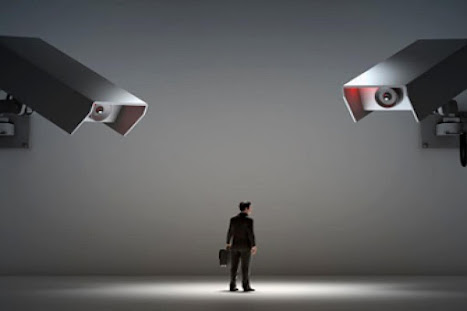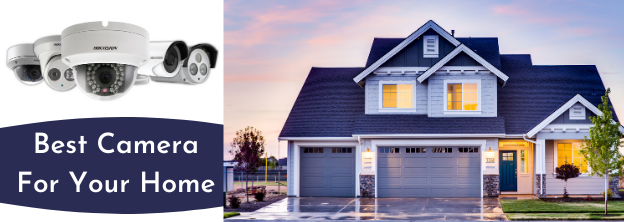What are home security systems?
The name "security system" says a lot about what it is. It is a way to protect anything with a network of systems and sensors that work together. A home security system is a group of electrical devices that can tell when something is happening outside. This could be doors or windows opening or closing, glass breaking, or people moving inside or outside the house. When these things happen, the sensors send a signal to the control panel, which turns on the alarm.
Think of your control panel as the brain of your security system. Touchpads can be used to turn your system on and off. The control panel will talk directly with the sensors and cameras. If someone breaks into your home, the alarm will go off, and if you have professional monitoring, the emergency response centre will be called.
The various components of a security system may include:
- Home security cameras are set up inside and outside the house to monitor everything. Several cameras record all the time and let the homeowner know when they see movement. Sometimes, a camera is enough to stop a criminal from doing something terrible. Modern cameras can record continuously or only when something moves. Even so, they often record videos and send notifications in real time.
- Motion sensors can be put in a home's main entryway or hallway on the ground floor to detect movement and let us know when your security system is on. Some motion sensors are sensitive to pets, so they don't always go off when your dog walks by.
- Entry sensors, also called "contact sensors," have two parts: one for the window or door and one for the frame. Magnets help these sensors determine whether one of these holes is open or closed. The sensor will let us know if it sees a door or window open. Entry sensors should be put on windows or doors on the ground floor. Batteries power most, and many have adhesive backs that make them easy to assemble.
- Another reliable system can tell when glass breaks. Sometimes, intruders break windows to avoid setting off the entry sensors. However, a glass break sensor listens for the sound of glass shattering and notifies us on our cellphones when it detects it.
- Sirens can be used as stand-alone devices or as parts of other devices in home security systems. Sirens often simultaneously sound more than one alarm to scare off intruders and warn your neighbours.
- We usually enter a code on a keypad mounted on the wall or placed on a flat surface to arm or disarm a security system.
- Since we already have car keys, why not use them for our home security system? If you have a key fob, you don't have to use a keypad to arm or disarm your security system. These are perfect when you don't feel like getting out of bed to check that all your doors are securely locked.
- If you press a panic button in case of an emergency, the police, hospital staff, or even firefighters will be notified right away. Many control panels have a panic button that sends signals to the monitoring centre through a landline, Wi-Fi, or cellular connection.
- Video doorbells are the first defence against people who steal packages or break in. Many doorbell cameras let you see and talk to people on your front porch from almost anywhere. Your existing doorbell will be replaced with a user-friendly video doorbell that is simple to install. The devices have a small camera that can record activities and photos that can be seen and shared. It also works like a doorbell, of course.
- Smart Carbon monoxide detectors can save your life by sending real-time alarms and messages to your phone. So, you will never go into a home with a CO leak and risk something terrible. These gadgets, like intelligent smoke alarms, are already set up and ready to use. Plug it in and follow the simple instructions for setting it up in the app that goes with it. When CO is found, the alarm will go off, and you will get a message immediately.
How do home security systems work?
The main job of a home security system is to keep your family and belongings safe. A break-in, a home invasion, a fire, a flood, or a natural disaster can cause damage. All of these can be found in the majority of home security systems. These systems use sensors that talk to a central hub through radio waves or wires. The hub then connects to the outside world through a cellphone or, sometimes, a landline. Most of the time, the corner is a touch screen on the wall or a small unit on a counter or in a cabinet.
The sensors are carefully placed around your home at doors and windows on the first floor, as well as in hallways and other high-traffic areas. They can tell when a door or window is opened or closed, and they can also tell when someone comes into or leaves your home. When the system is set up, when a sensor goes off, it means the hub. The hub will then sound an alarm, call you, send you a text message, or let you know through a mobile app. The hub can alert a monitoring center if you have professional monitoring.
With professional monitoring, trained security firm employees keep an eye on your system's signals and try to contact you and the right people if they find something that could be a threat. Professional monitoring contracts are needed for all security systems installed by a pro for up to three years. Most do-it-yourself options let you use professional monitoring without committing to a long-term plan. Most home security systems sold today are wireless and don't need a landline or wiring to be set up.
What are the types of home security systems?
- With do-it-yourself home security systems, the user puts together the parts and usually uses a mobile app to monitor the system. Still, a professional can monitor some DIY methods, so the two groups are not mutually exclusive.
- One of two things could be meant by "professional home security system." First, professional installation can tell that a professional put together the item. Or, it can mean a professionally monitored system where a team of people responds to contact centre warnings. Again, some professionally monitored techniques can also be self-monitored or set up by the homeowner, so these categories are not all or nothing.
- A wired security system is connected to the home's already-built electrical system.
- On the other hand, a wireless security system connects to the app and monitoring centre through batteries, Wi-Fi, and cellular backup if needed. Wireless security systems are more accessible to set up than wired ones, but the battery needs to be changed or charged.
- Intelligent security systems connect to the internet and let the user see live footage from a mobile app, get alarm messages, and control the system from afar.
- Local alarm systems are not connected to the internet like intelligent systems are, so there are no remote controls, monitoring, or alerts. Instead, you can only hear an alarm when you are close enough to listen to it. Professionals can still monitor local alarm systems through cellular or landline backup.
Benefits of a home security system:
- With professional monitoring, you can be sure that the police or other emergency services will be called when you aren't home.
- Just having a security system can keep people from breaking in. Even signs and window stickers saying you have a security system can keep people from breaking in.
- A home security system can warn you about these risks if you often forget to close the back window or leave the front door unlocked by accident.
- Through smartphone apps, entry sensors can let us know from a distant location if our home is safe or not. Notifications let you know when a person or movement is seen. This enables you to keep an eye on your home while you're away and ensure everything is okay.
- Many home insurance companies will give you a discount if you buy a security system, which will put more money in your pocket.
- Live streaming is not only used to show crimes but also a great way to see what's happening while you're away, like if your cats are being naughty or your teenage nephew is having a "little gathering." With live streaming, you can always feel at home, no matter where you are.
Are you looking for the best CCTV Camera Installation Chennai?
We “SayCure” provides Chennai's best CCTV camera installation and services.
Have any queries about the CCTV installation process?
Saycure’s expert team is here to solve all your queries.
♥ Do call 7695938051 or Fill out our Appointment form to get in touch!
♥ Follow our Social Media pages for recent updates. Facebook | Instagram




Comments
Post a Comment